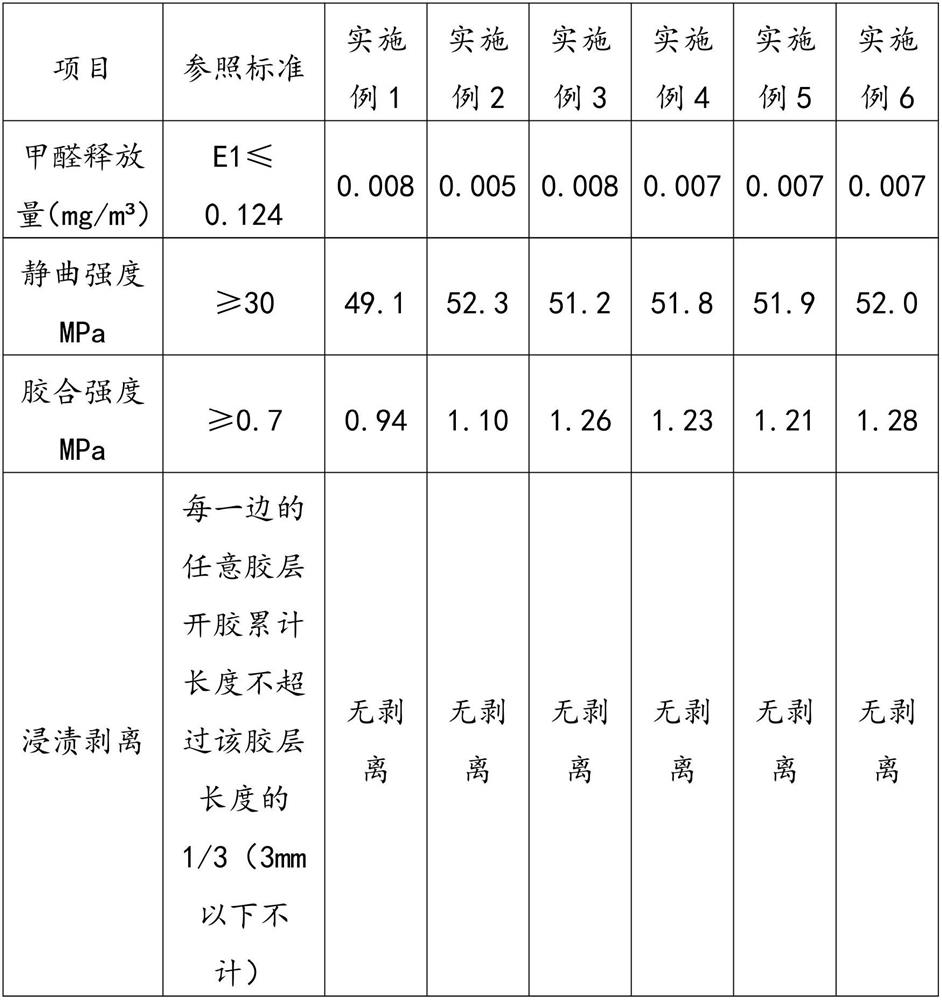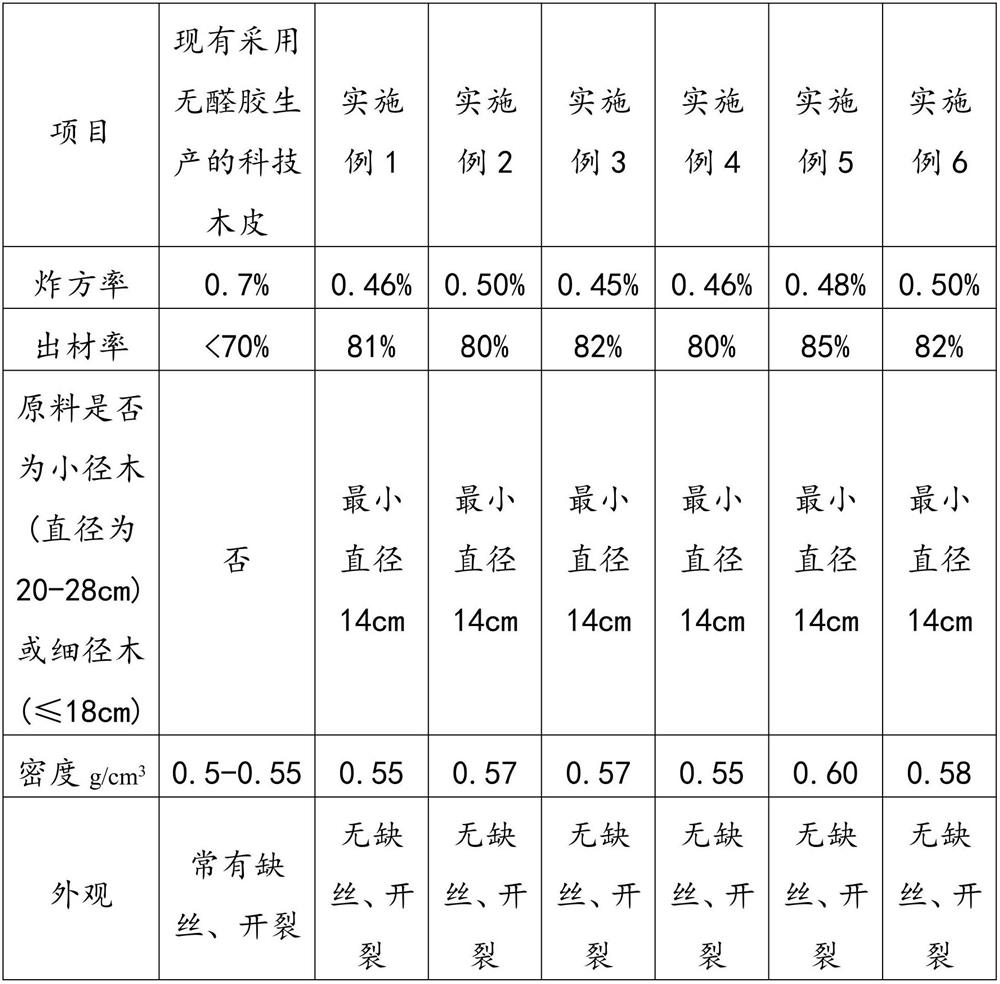A method for producing formaldehyde-free technological veneer for veneer solid wood multi-layer board assembly
A technical veneer and production method technology, which is applied in the jointing of wooden veneers, wood heating, wood treatment, etc., can solve the problems of environmental protection, high formaldehyde content, large glue consumption, etc., and achieve good pressing effect and flexibility Good performance and less sizing effect
- Summary
- Abstract
- Description
- Claims
- Application Information
AI Technical Summary
Problems solved by technology
Method used
Image
Examples
Embodiment 1
[0047] A kind of formaldehyde-free technological veneer production method that is used for veneer solid wood multi-layer board assembly according to the present invention, it comprises the following steps carried out in sequence:
[0048] (1) drying the wet veneer of economical fast-growing wood to a moisture content of 6%, and then repairing the wet veneer of economical fast-growing wood;
[0049] (2) Under the environment of ≥ 5°C, arrange and splice the wet veneers of the economical fast-growing wood after the treatment in step (1) into single-layer veneers with all horizontal grains, and assemble the single-layer veneers with horizontal grains The blanks are stacked, and the lines of all single-layer veneers are extended in the same direction. During the stacking process, formaldehyde-free glue is applied between the adjacent two-layer single-layer veneers stacked up and down. Each adjacent two-layer single-layer The amount of glue applied between the veneers is 260g; afte...
Embodiment 2
[0059] A kind of formaldehyde-free technological veneer production method that is used for veneer solid wood multi-layer board assembly according to the present invention, it comprises the following steps carried out in sequence:
[0060] (1) drying the wet veneer of the economical fast-growing timber to a moisture content of 4%, and then repairing the wet veneer of the economical fast-growing timber;
[0061] (2) Under the environment of ≥ 5°C, arrange and splice the wet veneers of the economical fast-growing wood after the treatment in step (1) into single-layer veneers with all horizontal grains, and assemble the single-layer veneers with horizontal grains The blanks are stacked, and the lines of all single-layer veneers are extended in the same direction. During the stacking process, formaldehyde-free glue is applied between the adjacent two-layer single-layer veneers stacked up and down. Each adjacent two-layer single-layer The amount of glue applied between the veneers i...
Embodiment 3
[0071] A kind of formaldehyde-free technological veneer production method that is used for veneer solid wood multi-layer board assembly according to the present invention, it comprises the following steps carried out in sequence:
[0072] (1) drying the wet veneer of the economical fast-growing timber to a moisture content of 8%, and then repairing the wet veneer of the economical fast-growing timber;
[0073] (2) Under the environment of ≥ 5°C, arrange and splice the wet veneers of the economical fast-growing wood after the treatment in step (1) into single-layer veneers with all horizontal grains, and assemble the single-layer veneers with horizontal grains The blanks are stacked, and the lines of all single-layer veneers are extended in the same direction. During the stacking process, formaldehyde-free glue is applied between the adjacent two-layer single-layer veneers stacked up and down. Each adjacent two-layer single-layer The amount of glue applied between the veneers i...
PUM
 Login to View More
Login to View More Abstract
Description
Claims
Application Information
 Login to View More
Login to View More - R&D
- Intellectual Property
- Life Sciences
- Materials
- Tech Scout
- Unparalleled Data Quality
- Higher Quality Content
- 60% Fewer Hallucinations
Browse by: Latest US Patents, China's latest patents, Technical Efficacy Thesaurus, Application Domain, Technology Topic, Popular Technical Reports.
© 2025 PatSnap. All rights reserved.Legal|Privacy policy|Modern Slavery Act Transparency Statement|Sitemap|About US| Contact US: help@patsnap.com



